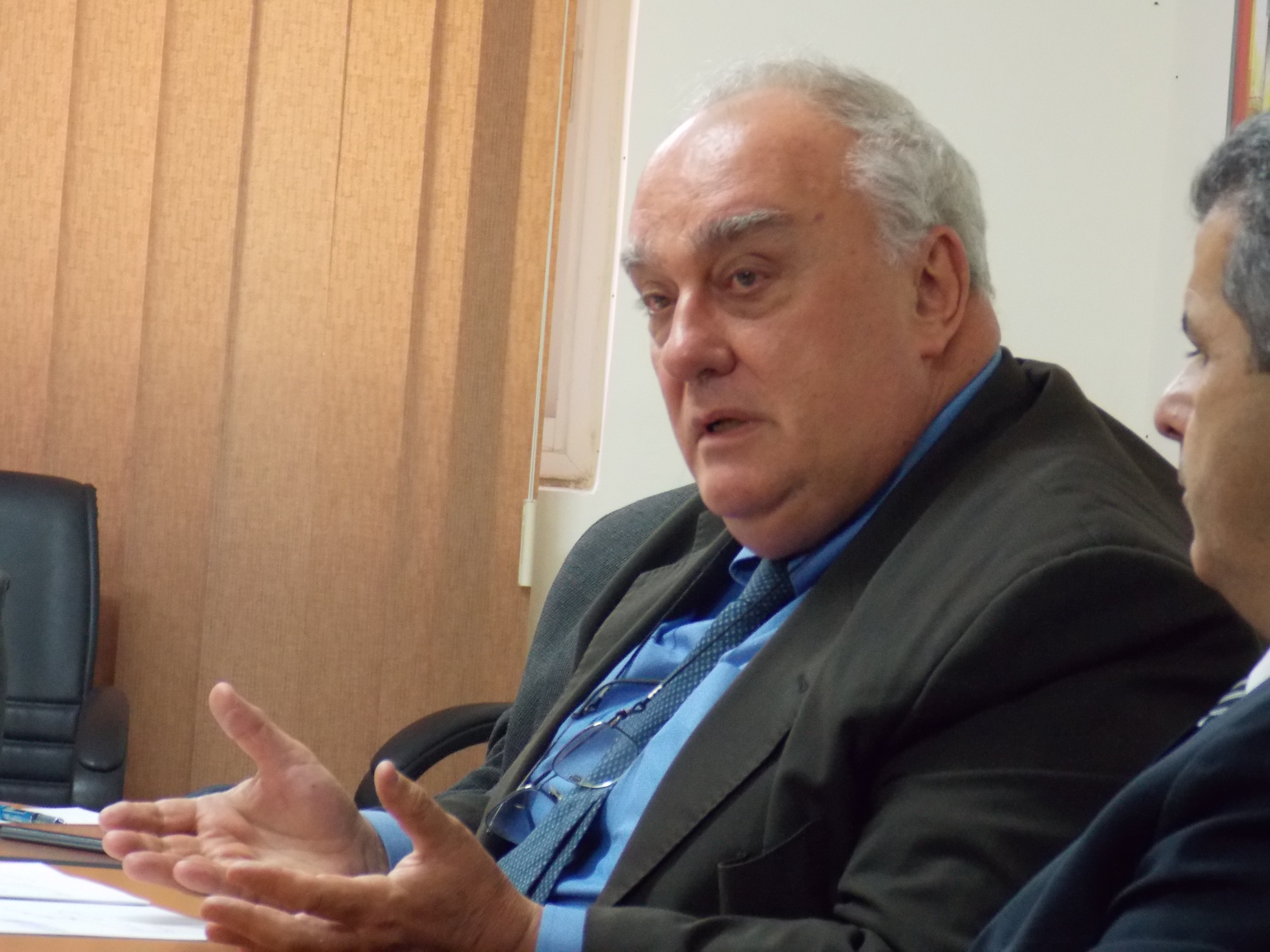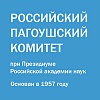Interview with Pugwash Secretary General Paolo Cotta-Ramusino
In
Log in if you are already registered
The interview was taken during a meeting with the Secretary General of the Pugwash Conferences on Sciences and World Affairs, held at the Russian Pugwash Committee at the Presidium of the Russian Academy of Sciences (RAS) in the Main Building of the RAS on March 4, 2017
Natalya Samoylovskaya: Your recent visit as a part of the Pugwash-Kabul Dialogue was in Afghanistan. How do you evaluate the prospects for establishing peace in Afghanistan? What are the real steps in this direction that could be taken?

Paolo Cotta-Ramusino, pugwash.org
Paolo Cotta-Ramusino: I think the situation in Afghanistan is a very critical one. We have seen billions, trillions of dollars thrown into the country. It is a unique phenomenon in these days. However, all these efforts led to no peace at all, up to now. Despite thousands, tens of thousands of American troops there, the situation has not improved.
N.S.: Why? What are the reasons?
P. C-R.: I think that there have been lots of mistakes in dealing with the situation. To begin with, there has been the Bonn Conference of 2001 that completely cut off the Taliban. The Taliban are still present in Afghanistan. The Taliban cannot win over the Government of Afghanistan and the Government of Afghanistan cannot eliminate the Taliban. Moreover, there are other groups which are more dangerous, such as DAESH. I think that it is really important to find a possible agreement with the Taliban. First of all, we must understand that not all radical groups are alike. There are groups, such as the Taliban, that are interested in addressing regional and national issues. At the same time, there are other groups, such as Daesh, that want to make global jihad and are possible, from the point of view of global impact, much more dangerous. I think there is the possibility of the Taliban making an agreement with the present political forces in Afghanistan. We should strengthen this possibility and sustain the idea of a negotiating process as well as the elaboration of such an agreement. We have worked out a Pugwash peace proposal (Points for Afghan Peace) which is published on our website. And we would like to carry it on. Unfortunately, these peaceful efforts run into the divergent interests of certain groups, some of them related to the Afghan government which largely depend on the American and western supplies of weapons and money. Another difficult issue is connected with the Taliban. They also have different viewpoints. Moreover what kind of control do they have over parts of the territory of Afghanistan? But the Taliban declared that they are in principle against a monopoly of power and hence support forms of power sharing. So we hope that the difficulties to have a negotiated agreement can be eventually overcome, but there is a lot of work to be done. At the moment Pugwash plays a relevant public role in Afghanistan which poses on us a certain responsibility and at that enables us to make more reasonable proposals. On December 13, 2016, we held a workshop in Kabul (information published on the Pugwash website) with the participation of many significant political leaders and representatives of various non-government organizations. Previously we organized in Doha, the capital of Qatar in May 2015 and January 2016, meetings between the Taliban and representatives of several Afghan forces. Our project is going on and we hope that Russia and the Central Asia countries will help us with it.
N.S.: In which way?
P. C-R.: Through participation and making suggestions. I think there is a growing interest in Russia in finding a solution to the problem of Afghanistan. Even China is concerned with this issue. The main concern is about radical groups such as DAESH. These groups can spread to Central Asia as well as to China and particularly to India and Pakistan thus posing a security threat in the region. Moreover, these risks can involve also a nuclear danger. In fact, the spread of radical and terrorist groups in the region including Pakistan and India can possibly trigger hostilities between India and Pakistan. Both these countries possess nuclear weapons. Coming back to Afghanistan we should avoid the possibility of “a Syria number two” that could spread instability in the region. A deep humanitarian crisis in the whole region can possibly be much worse than what is happening in Syria now. We could have a very large number of refugees and, as a consequence, our lives, even outside the region, can be heavily affected. If there is a place which can become a danger from the point of view of global stability, this is South Asia.
N.S.: Thank you. The next question. Your professional interests lie, on the one hand, in mathematical physics, and, on the other hand, as a Pugwash Secretary General, in arms control and disarmament. It has been a great Pugwash tradition to promote the involvement of scientists in arms control and disarmament. How is it important and relevant in our time?
P. C-R.: Well, I used to be a mathematical physicist. In the last thirteen-fourteen years, I have not been doing any more mathematical physics since my interests and my commitment to arms control and the nuclear risk as well as to the risks associated with conflicts, in general, became overwhelming for me, for my life. Now I also teach a course on nuclear weapons. My professional interest has shifted dramatically. I deal with nuclear weapons, nuclear risk, nuclear stability, nuclear arms control, with the problems of how nuclear weapons proliferation is being dealt with. Nuclear weapons and the consequences of their possible use in conflicts is quite enough for a life`s job. But since you asked me a complex question I want to add that being a physicist helps me to understand better the problem of nuclear proliferation and the nuclear risk. This is a great advantage as it can happen that politicians addressing such complicated issues like the ones associated with the Iranian nuclear program, do not necessarily understand exactly all the technical aspects of what they are talking about.
Question from Professor Alexander Nikitin: Probably I have a more complicated question for the same interview. How do you relate Russian-American relations to other threats and challenges which exist in the world? In Moscow, it may still look that the most important line in international relations is the Moscow-Washington line. But it looks like India, Pakistan, Syria and Libya have become the most important issues in international relations. So where on the map will you place Russian-American relations now? Are they marginalized by other threats or are they still in the center?
P. C-R.: I would not say that Russian-American relations are not in the center. Certainly, they are very important but there are other very relevant issues in international relations. If we put at the center, the risk of nuclear exchanges, probably we are not referring primarily to the risks connected to the Russian-American relations or to the conflict of interests between them. When I say ‘probably’ I am being careful since ‘probably’ does not mean ‘certainly’. We discussed before the nuclear risks in South Asia. We can also talk about the dangerous situation on the Korean peninsula. I think different things can happen. You remember what happened between Russia and Turkey when a Russian airplane was attacked by Turkey. That would have meant that Russia had the right to retaliate against Turkey and this could have created a NATO-Russian problem. I think this was not the case also due also to a good sense of responsibility on the Russian side. The risk of nuclear proliferation in the Middle East is also a serious problem. Now Israel is still the only country in the Middle East possessing nuclear weapons. But for how long? Israel, unfortunately, plays a negative role from the point of view of nuclear proliferation.
Question from Professor Alexander Nikitin: One of my questions regards the Iranian deal. Russia strongly supported the Iranian nuclear agreement. At the same time, we constantly hear rumors that the current American administration is tough towards Iran and might break the existent deal. Do you think it is possible that the Trump administration will step out of the agreements reached with Iranians?
P. C-R.: First of all, it is good to say that during the discussion on Iranian nuclear issue the Russian position has always been productive and positive. We appreciated that. We think that Russia has been helpful in leading to the joint comprehensive plan of action. I think also that accepting the joint comprehensive plan of action was a very serious political bet for the present Iranian leadership. If they will not get the relevant benefits in terms of gaining access to international business, commerce and money exchange then for the present moderate leadership in Iran, the agreement can become a boomerang. We hope this will not happen. So, I think that the preservation of the agreement in its integrity and its spirit is very important. And we would like to contribute to that. We also believe that the Russian side can make a positive and effective contribution. We would like to work on this issue inside the United States and hope to talk with representatives of the present administration, hoping in an adjustment of the rhetoric so to have a more positive and clear understanding of the situation.
Ekaterina Shanchenko: You mentioned that the spread of DAESH to other countries has become a burning issue nowadays. So, do you see any ways to prevent its spread to other counties? Is it just an issue of security or an issue of some other kind? How can countries prevent the threat of DAESH expansion?
P. C-R.: Well, DAESH is not really a global organization. It is a network of groups and people who believe that some critical events can change the face of the world. This is an idea like the one that was behind the September 11 attack. They want to create “big events”, big crises and hope that the international relations will change dramatically. Therefore I think that we should consider two problems.
First, never classify the entire Muslim world as dangerous. This is the biggest mistake that some unfortunately make.. The second mistake, which is somehow similar in nature, is to consider all radical movements which are more or less inspired by Islamic principles to be in one category
I think that the Muslim Brotherhood, HAMAS, Hezbollah, the Taliban and others like those have a specific national agenda. You may disagree with them. But the point is that these groups are concerned about the problems of their own people. Other groups instead want to become the main actors of a general fight against an unspecified reality including the West. These last groups differ from the other ones. With the groups that are more concerned about regional/local problems, you can possibly deal with and maybe you can talk to them. You can say “there is some concern, we should talk to you”. And we talk with the Taliban, and we should talk with HAMAS. With the DAESH-type groups that want so to say, a global revolution or a global change of relations is more difficult, if not impossible, to talk. You cannot put, I repeat, HAMAS or the Muslim brothers in the same category as DAESH. It is very important to maintain the distinction The same argument applies to the Afghan situation. We should not put the Taliban in the same category as the DAESH groups that exists both in Afghanistan and Pakistan.
Question from Professor Alexander Nikitin: Well, on Tuesday when I was in the United States I was watching a TV program broadcasting Trump’s address to the Congress. And Trump clearly said the following phrase: “ISIS should be fully eliminated”. And then he added: “We would cooperate with Turkey and NATO”. He didn’t mention Russia in this list. So, my first question is whether you think it is possible to create any western coalition against ISIS, against DAESH without the participation of Russia? My deeper question is if the goal is being set rightly? Because physical elimination of DAESH means that you will have to bomb villages which are simply under the control of DAESH. As it is, we started with the full negation of the Taliban and finished with the negotiations with the Taliban. I would say that in some time we may need to negotiate with ISIS as well. We will need to find some compromises. So, what way of the solution to the problem you see: a physical elimination of DAESH or finding a compromise with it?

P. C-R.: In your question, you have touched different issues. First of all, Russia should be included in this initiative in a positive way. So, I disagree with the fact that Russian participation can be ignored. The second point is that the physical or total elimination of DAESH leaders (if feasible) will eliminate only a political threat but not necessarily the ideology of DAESH. And killing civilians in the fight against Daesh will obviously not help. The third point is about the distinction I have already made between DAESH and the other radical groups. Total elimination of DAESH as such is a difficult task. But if the only purpose of DAESH is to destroy, it is very difficult to talk with them. Of course, you can induce some of them to shift to the other side. This is true. We should consider it. I would like to mention a different situation of the past, in order to better understand what we are talking about. I am thinking to the Red Brigades, the Baader-Meinhof group and the other similar radical groups of the extreme left in Europe. The extreme left as a whole was motivated by different ideas, they were not all absolutely in the same category of the Red Brigades. The Red Brigades, as well as the other similar groups, were of the opinion that you had to make some big visible attack or series of attacks and then things would suddenly change. So, this is the reason why they were promoting terrorist attacks or the killing of specific people. It was very difficult to talk with them. At the end of the debate, they had to be politically defeated. So it was right not to talk to the Red Brigades or better it was useless to talk with them. There is really no possibility of talking with groups that promote, so to say, catastrophic events. DAESH is a group that, incidentally, collects also people from the Western Europe and sends them back to make terrorist attacks. Moreover, DAESH groups are very sectarian, radically aimed at bringing a group of Muslims against the others. Think for instance to the Sufi mosque which was just recently attacked in Pakistan where 88 people were killed. Similarly, consider all the attacks against Hazara Mosques and Hazara people in Afghanistan. Hazara is predominantly Shia. There is really no hope for sectarianism. And I think that some of the Taliban were in some sectarian period too in the past, but now we can hopefully talk with them now. As the core of the problem is to promote regional stability and accept ethnic and religious differences, there is no legitimate space for groups that discriminate people on the basis of their ethnicity, ideology or religion.
E. Sh.: I have another question about the migration crisis. You know that there are some consequences of the Syrian war in Europe now. As for Afghanistan, is there any possibility of migration crisis in this country?
P. C-R.: Actually, this is a key question. The Syrian crisis has generated a wave of problems in European relations including Brexit, populism and some similar consequences. Now, if the situation in South Asia and Central Asia goes in the same direction, the effect could be much more dangerous. So, we do not want to support the spoilers in these countries but we need to accept political dialogue and opposition. Otherwise, if there is a big crisis in Pakistan or in India this may lead to the possibility of the use of nuclear weapons. And that may well cause problems extremely more serious than the present migration crisis. If there is a big crisis, our world as we know it, possibly will not exist anymore. So we are dealing with very serious and delicate problems.
Interview prepared by:
Natalya Samoylovskaya
Ekaterina Shanchenko
Diana Novikova




